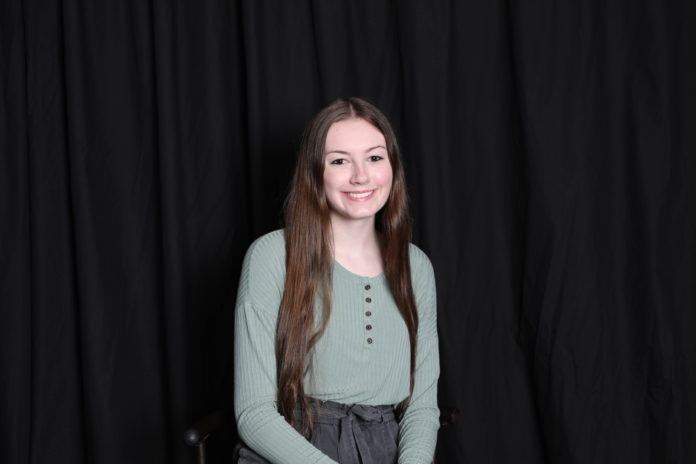By Jenna Fitzgerald | Copy Editor
As society has moved further into the digital age, we have witnessed the rise of many new forms of digital media, from e-books and streaming services to blogs and social media. Perhaps one of the greatest technological innovations of our time, though, is the podcast.
According to Statista, the proportion of the U.S. adult population that’s aware of podcasting rose from 22% in 2006 to 78% in 2021. Additionally, the nation’s estimated 120 million podcast listeners from 2021 are expected to grow to over 160 million by 2023.
I’ve hopped on the podcast bandwagon myself, and while I would by no means consider myself a fanatic, I’ve found a few niche series that I like to keep up with. For example, “The Daily” by The New York Times gives a reliable 20-minute rundown on the news Monday through Friday, while “Called to Communion” by EWTN is an ever-changing call-in show that helps me learn more about my Catholic faith. And, of course, true crime podcasts never disappoint.
I love how this new medium has become not only popular for consumers but also accessible for creators. Notably, the everyday person can gain their own platform at little to no cost, and doing so can be as simple as making an Anchor account and hitting the record button. What I don’t love, though, is how seemingly frivolous and meaningless this venture now appears to be.
I look at podcasts like I look at businesses. Before you start one, you need to have a solid idea that has a specific goal — perhaps solving a problem or bringing light to a particular topic. Additionally, you need to make sure you’re qualified to speak on whatever your subject matter is. Finally, you need to have a plan for episode structure and possibly even guest speakers. The bottom line is this: Treat your podcast like a business, nothing less. When you enter the world of digital media and have influence over an audience, you’re accepting a profound level of responsibility to provide high-quality, accurate content. Have a detailed plan, and don’t treat it as an inconsequential side hobby.
This issue isn’t helped by the fact that many high-profile reality stars have picked up the mic and used their already existing platforms to gain automatic listeners. Yes, I’m talking about the astonishing number of Bachelor Nation contestants who have gone on to start podcasts after the show. While I’m sure Jared Haibon and Dean Unglert’s “Help! I Suck at Dating” and Jade Roper and Carly Waddell’s “Mommies Tell All” have some useful tips to share, I’m skeptical of the pipeline that appears to lead from the set of “The Bachelor” and “The Bachelorette” directly to the recording studio. It’s almost as if these high-profile reality stars are using a name to enter an industry they really don’t know much about.
Podcasts are meant to have concrete, meaningful purposes, and just because making a podcast is easy doesn’t mean everyone should sit down to record one. If you feel like you have unique experiences or an eccentric interest to share with the world — and if you are willing to put in significant time, effort and planning — go for it. If you don’t, though, join me in the audience and learn to be content with sitting back and watching the success of others.






